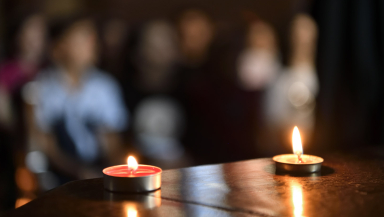
Religious freedom is under growing threat across the globe, according to a new report released by Aid to the Church in Need (ACN).
The organisation’s biennial Religious Freedom in the World 2025 report paints a grim picture, revealing that 64.7% of the world’s population— about 5.4 billion people — live in countries where this fundamental right is severely restricted or denied.
Commenting on the report's launch, ACN International Executive President Regina Lynch said: “The right to freedom of thought, conscience and religion — protected under Article 18 of the Universal Declaration of Human Rights — is not only under pressure; in many countries it is disappearing.”
Out of the 196 countries the study examined, grave infringements were found in 62 of them.
Twenty-four nations were categorised as suffering “persecution,” while 38 were marked by “discrimination.”
Only Kazakhstan and Sri Lanka recorded progress since the last report.
Authoritarianism emerges as the chief force behind religious oppression, according to the report.
In most countries where persecution (19 out of 24) or discrimination (33 out of 38) occurs, governments actively monitor, restrict, or silence religious expression.
Governments utilise sophisticated digital and online censorship and unlawful detentions to curb autonomous faith groups in nations such as Eritrea, China, Nicaragua and Iran.
“The control of faith has become a tool of political power,” the report warns, highlighting a growing “bureaucratization of religious repression” designed to stifle dissent.
The editor-in-chief of the 2025 report, Marta Petrosillo, said that the study adopts a broad, global perspective that examines all faiths rather than focusing solely on Christianity.
She pointed out that it is the only report of its kind not connected to any government and emphasised that, in many countries, legal protections for religious freedom remain weak or purely symbolic.
Beyond state control, the influence of extremist movements is steadily growing — particularly in Africa’s Sahel region and parts of Asia.
Islamist militant groups, including Islamic State–Sahel Province (ISSP) and JNIM, have devastated communities, destroying hundreds of churches and schools, and forcibly removing millions.
Ethno-religious nationalism is also a major concern. In India and Myanmar, minorities like Christians and Muslims face legal exclusion and mob violence.
ACN describes India’s situation as “hybrid persecution,” blending discriminatory laws with politically fuelled hostility.
Conflicts in Ukraine, Palestine, Russia, Israel, and Myanmar have worsened the erosion of religious rights, with violence and war driving mass displacement.
In Nigeria, armed assailants associated with extremist Fulani herders have destroyed entire villages.
Across the Sahel, jihadist militias continue to erase centuries-old Christian communities, while in Sudan, civil war has forced Christians to flee historic homeland regions.
Meanwhile, organised crime has arisen as a new persecutor of faith.
In Mexico and Haiti, criminal gangs have targeted church leaders through kidnappings and killings to assert territorial dominance.
The report also warns that religious intolerance is not limited to authoritarian states.
In Europe and North America, incidents of vandalism, desecration, and assaults against religious institutions have surged.
France alone documented almost 1,000 church attacks in 2023, while Greece, Spain, and Italy also saw hundreds of new cases.
The ACN also tracked a sharp surge in anti-Semitic and anti-Muslim acts in the period after Hamas’ attack on Israel on October 7, 2023.
In France, anti-Semitic incidents spiked by 1,000%, while Germany saw over 4,000 religion-linked occurrences — up from just 61 the previous year.
Amid the grim findings, the report underscores stories of resilience and interfaith cooperation.
In regions like Mozambique and Burkina Faso, faith-based initiatives are fostering reconciliation and rebuilding trust among divided communities.
Ms Lynch remarked: “The right to live according to one’s conscience is the heartbeat of human dignity. Where it is respected, peace and justice flourish. But where it is denied, the human spirit and society lose their very foundations.”
She added: “Religious freedom is the thermometer for all other human rights. Its decline signals a wider collapse of fundamental freedoms.”
During the Vatican launch, ACN leaders urged international institutions to take concrete steps to defend the right to belief.
The organisation also revealed plans for its inaugural worldwide petition, aimed at urging stronger legal safeguards for religious liberty.
The initiative is expected to be formally submitted to the United Nations, the European Union, and various democratic governments in November 2026.













